
Cayenne Pepper · Washington's Mount Vernon
Capsicum ( / ˈkæpsɪkəm / [3]) is a genus of flowering plants in the nightshade family Solanaceae, native to the Americas, cultivated worldwide for their chili pepper or bell pepper fruit. Etymology and names A small capsicum plant
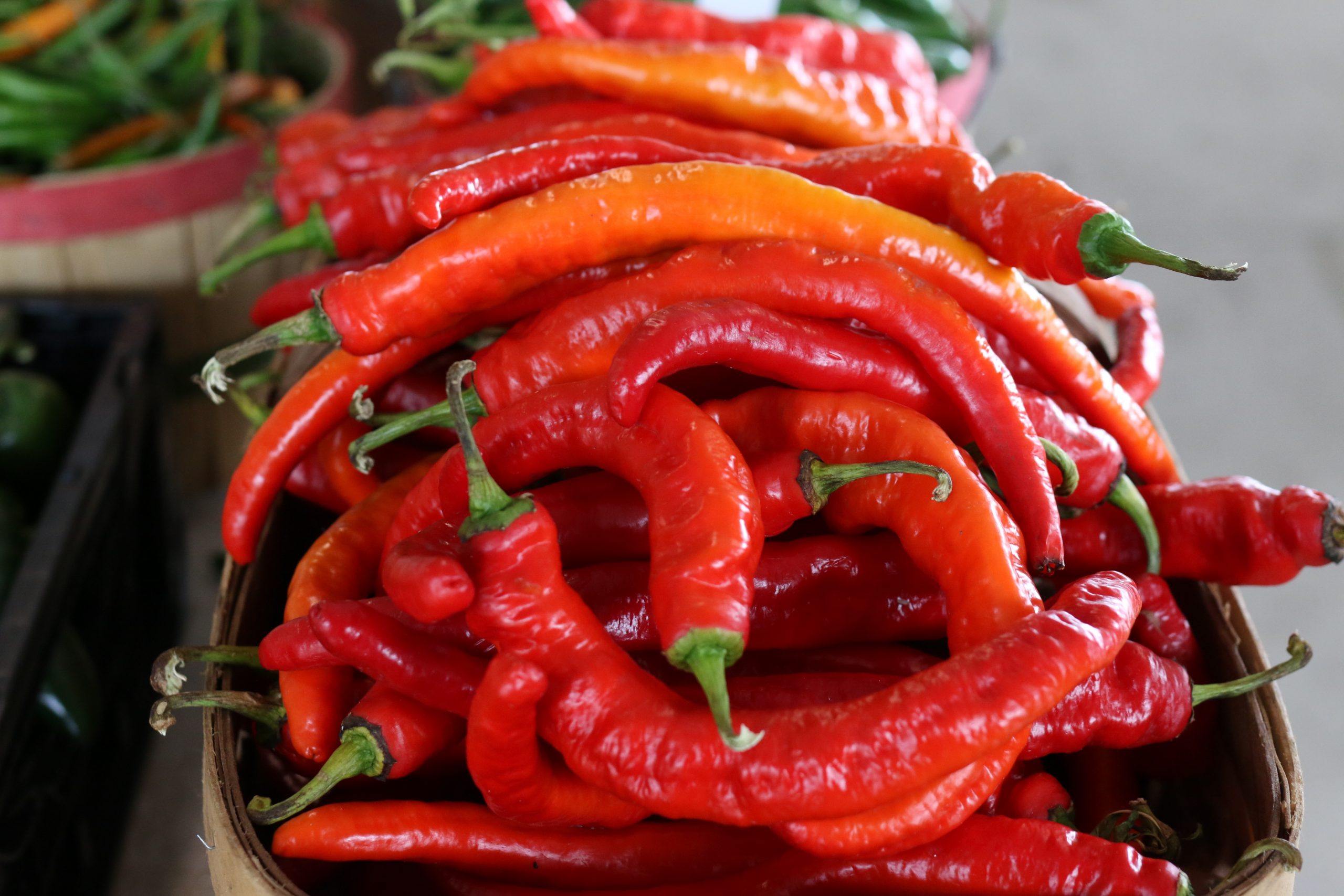
Cayenne Peppers Nelson Family Farms
The cayenne pepper is a type of Capsicum annuum. It is usually a moderately hot chili pepper used to flavor dishes. Cayenne peppers are a group of tapering, 10 to 25 cm long, generally skinny, mostly red-colored peppers, often with a curved tip and somewhat rippled skin, which hang from the bush as opposed to growing upright.

Cayenne pepper Wikipedia Stuffed peppers, Negative calorie foods, Natural remedies for arthritis
Cayenne peppers are a popular chili pepper used to spice food in Mexico and the US. Otherwise known as "capsicum annuum," this thin red pepper can be grown outdoors in sandy, acidic soil. Although these peppers are perennials, meaning they grown continuously, their harvest can be reduced the second year, so they are often replanted.
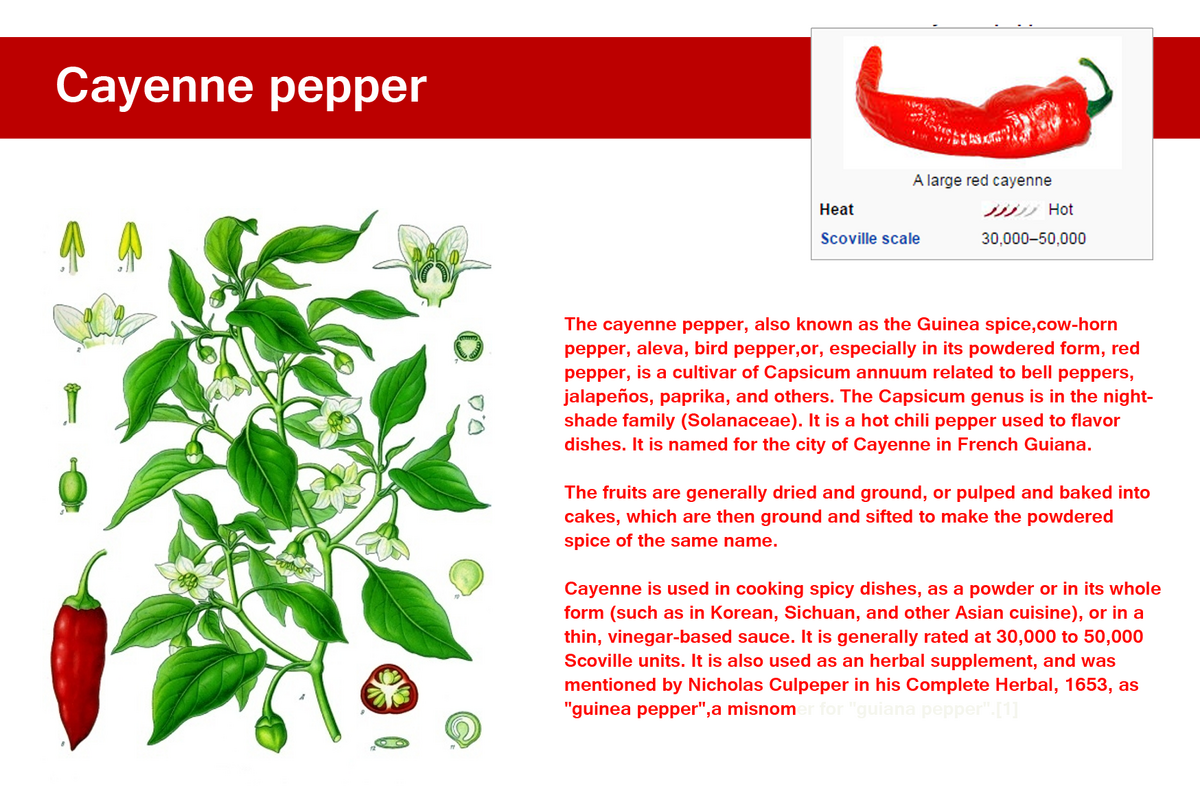
Cayenne pepper Wiki Fandom
The cayenne pepper is famous for its many health benefits. You'll be hard-pressed to find a natural remedy that boasts more versatility than this popular pepper. But why would you pay for the supplements when these are the same benefits you can get from cooking your favorite dish with the whole pepper?

Cayenne Pepper
cayenne pepper, ( Capsicum annuum ), small-fruited pepper in the nightshade family ( Solanaceae ), the source of a very pungent spice of the same name. The cayenne pepper is a cultivar of Capsicum annuum and is said to have originated in Cayenne, French Guiana.

La coltivazione del peperoncino di cayenna è relativamente semplice a patto che si prendano le
By Lisa Sharples Updated: 7/21/2023 Explore the ultimate guide to cayenne pepper, its health benefits, history, and culinary uses, and learn how to incorporate this fiery spice into your daily life. What is Cayenne Pepper? Cayenne pepper is a hot chili pepper belonging to the Capsicum family.
:max_bytes(150000):strip_icc()/GettyImages-1260737260-0b0f0e96a63a4e3ea2c95aa0ea21984d.jpg)
Cayenne Pepper Care and Growing Guide
CAYENNE PEPPER ( Guinea Pepper, Spanish Pepper, Chilly ), a preparation from the dried fruit of various species of Capsicum, a genus of the natural order Solanaceae. The true peppers are members of a totally distinct order, Piperaceae. The fruits of plants of the genus Capsicum have all a strong, pungent flavour.

How To Grow Cayenne Pepper Plants Horticulture.co.uk
Half a cup of fresh chopped cayenne pepper has about: Calories: 30. Protein: 1.5 grams. Fat: 0.33 grams. Carbohydrates: 6.5 grams. Fiber: 1 gram. Sugar: 4 grams. Fresh peppers are better for you.
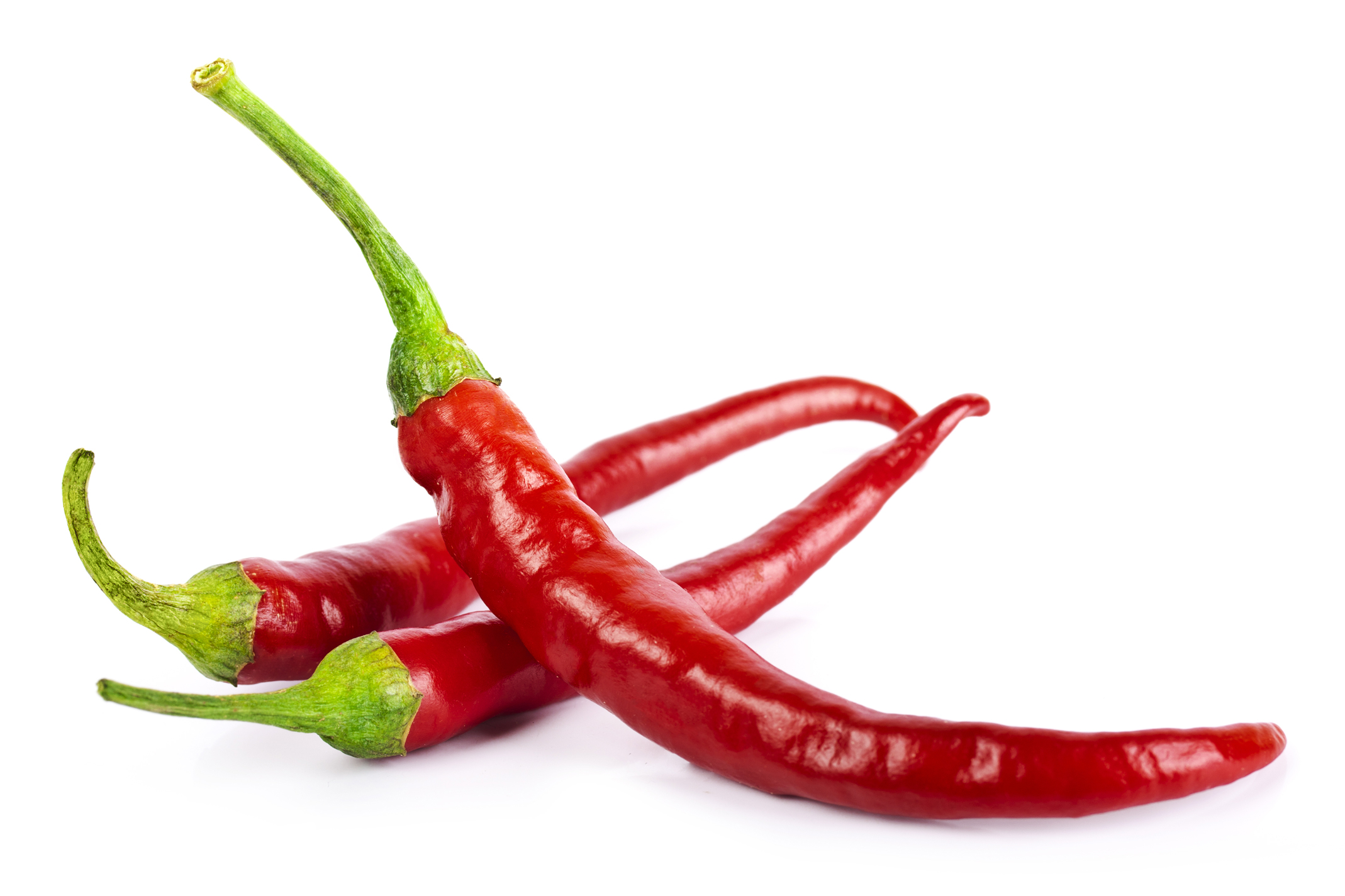
Cayenne pepper facts and health benefits
Capsicum annuum Capsicum annuum is a fruiting plant from the family Solanaceae (nightshades), within the genus Capsicum which is native to northern region of South America, and southwestern North America. The plant produces berries of many colors including red, green, and yellow, often with pungent taste.
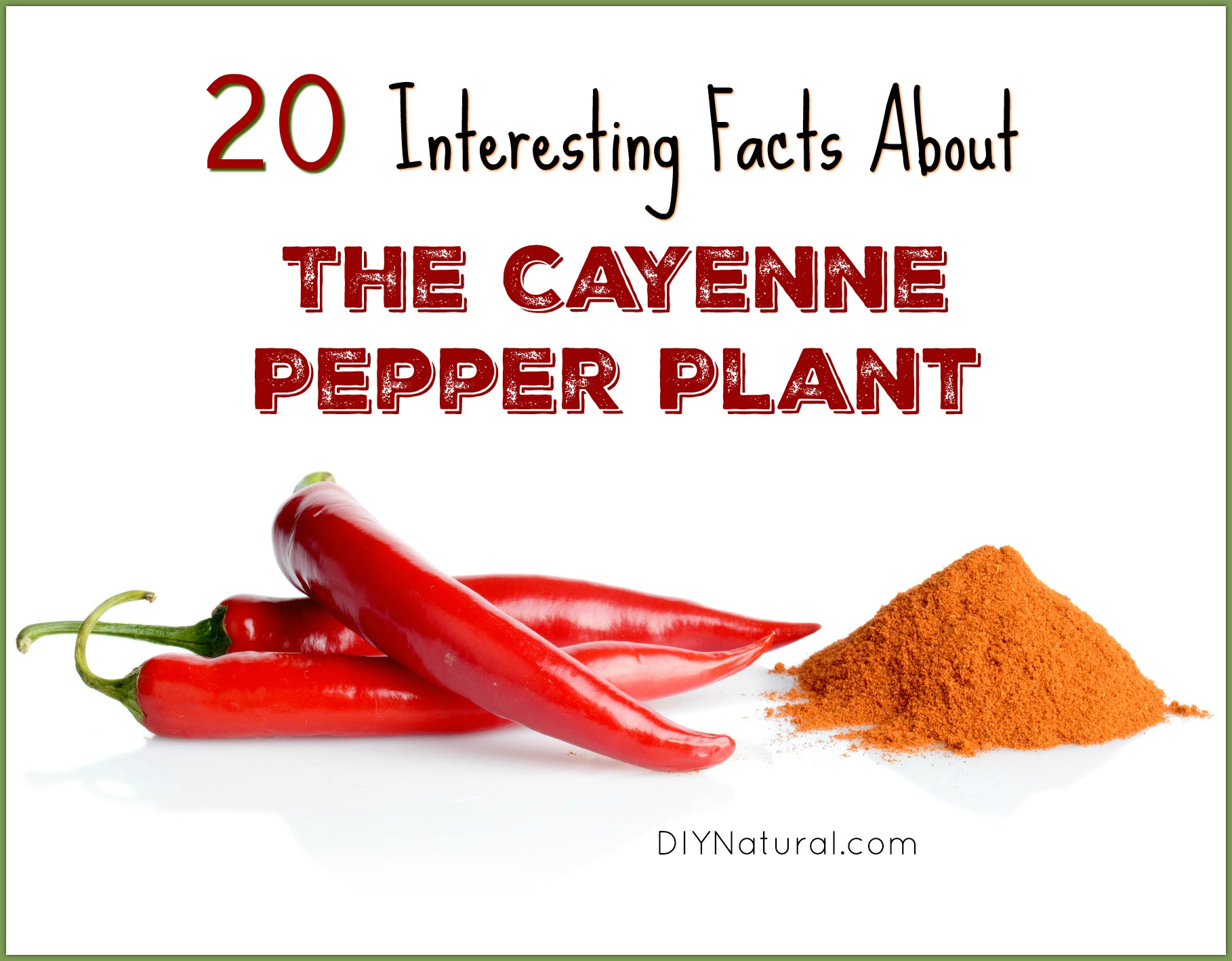
Capsicum Annuum 20 Interesting Facts of the Cayenne Pepper
Cayenne peppers, scientifically known as Capsicum annuum, belong to the Solanaceae or nightshade plant family, which also includes tomatoes, eggplant, and potatoes ( 1 ). They're a type of chili.

Cayenne pepper Wikipedia, the free encyclopedia Stuffed peppers, Growing peppers, Herbs
Capia pepper ( Chili) is one of the oldest crops, and belongs to the plant genus Capsicum and family Solanaceae. Worldwide, more than 20 varieties of pepper belonging to the genus Capsicum are available, such as bell peppers, jalapeños, New Mexico Chile, and cayenne peppers with different taste, colors, sizes, shapes, and pungencies.
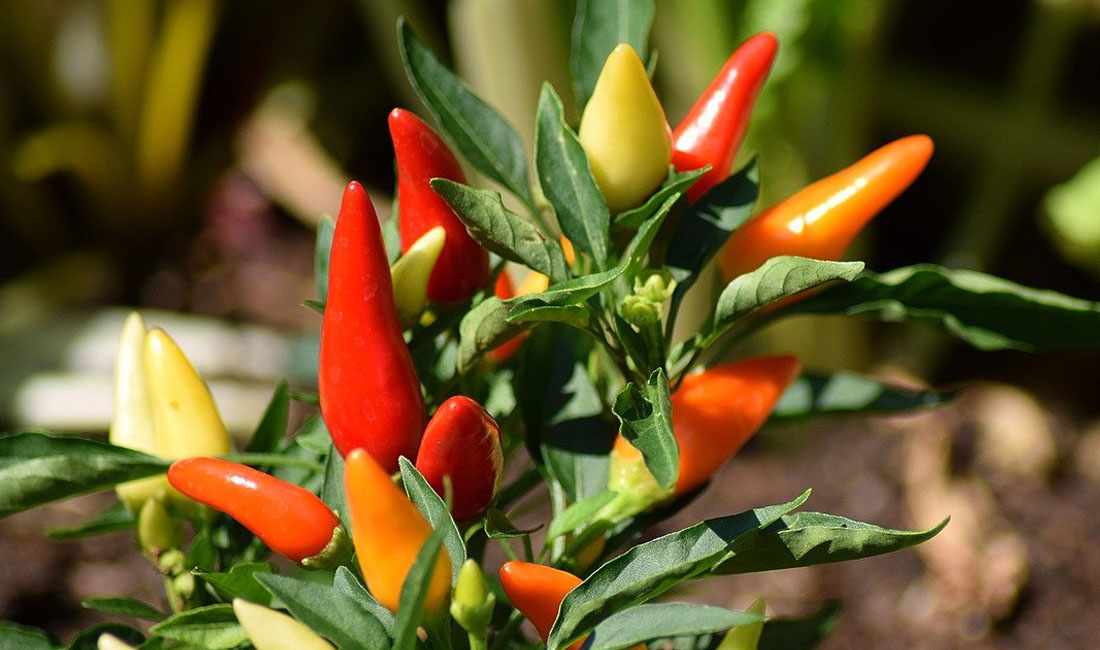
Cayenne Pepper Plant Benefits Uses Grow Herbs Science
Moved Permanently. The document has moved here.

10 Exciting Facts About Cayenne Pepper
Pour hot water over the cayenne. Try to use water that has almost reached the boiling point. 3. Stir the cayenne and the water until it is dissolved. You will notice flakes of the cayenne pepper floating in the water, which is fine. 4. Add the juice from half a lemon to the cup. Stir the lemon juice into the tea. 5.
Cayenne Pepper Club Penguin Wiki Fandom
Water. Watering cayenne pepper plants can be a delicate process. They do require moist soil, but overwatering is a problem too. If the soil becomes too dry or saturated, the foliage can turn yellow, and the plant can struggle. Give your plant a deep watering when the top 1 to 2 inches of soil have dried out.

Cayenne Pepper Guide Heat, Flavor, Uses PepperScale
Cayenne pepper offers 80% more vitamin K per 100 grams. Red bell pepper only provides 4.9 micrograms. Cayenne pepper has more riboflavin, thiamin, niacin, folate, and vitamin B6 than red bell.

Which Is The BEST Cayenne Pepper? Comparing 7 Different Varieties Pepper Geek YouTube
Vitamin C. Vitamin A. Vitamin B6. Vitamin K. "If you can get your hands on fresh cayenne peppers, you'll get a lot more vitamins. One fresh pepper has 72% of the recommended daily amount of.